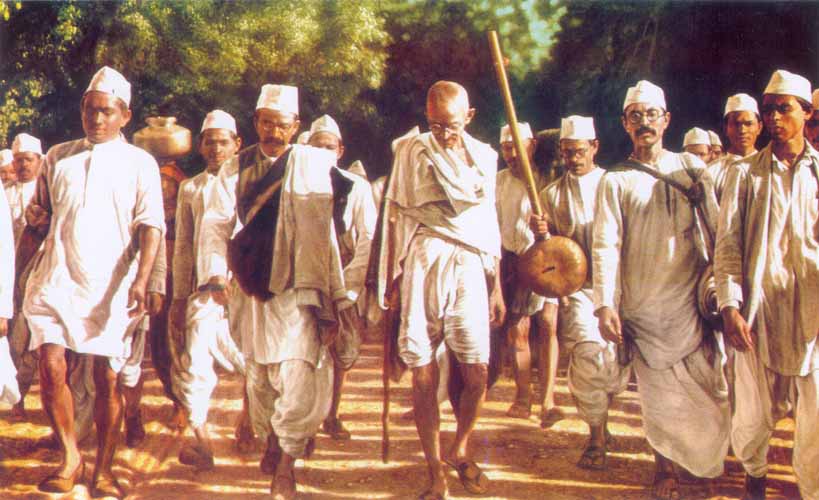Gandhi's Life

Born in 1869, in Porbandar, India. Gandhi was a lawyer, and social activist, leading the movement against the British rule of India. He is known across the world for his non-violence ideology. While young, Gandhi left India to London, in order to visit, as he thought of it as a very "central philosophical part of civilization". There he attended the Inter Temple, studying law. Returning to India, he tried setting up his own law practice, but failed. He accepted a position at an Indian firm in South Africa. This travel led to Gandhi to start passive resistance, a way of non-cooperation with authorities. Gandhi and General Jan Christian compromised to include recognition of Indian marriages and removal of poll taxes for Indians. Returning back to India, he supported the British war effort in 1914, but felt their authority were not right. He launched a passive resistance campaign, after colonial authorities were given emergency powers to suppress activists. Gandhi also highly stressed economic independence for India, as apart of his pacifist campaign, to make sure India wasn't completely depend on Great Britain. He gained followers quickly, due to his lifestyle on prayers and fasting, and meditation. He turned his movement into am entire organization, leading boycotts across British manufacturers. Due to violence which occurred, he ended his movement. Britain eventually granted India independence, but split it into India and Pakistan. Gandhi did not like the Partition, but agreed to it as he hoped it would achieve peace, and independence for Hindus and Muslims. He was assassinated after a Hindu fanatic was upset with Gandhi wanting to negotiate with Muslims. His impact so large his processions consisted of 1 million people, and his body was carried through streets of the city, and cremated.
Gandhi's Struggles
Gandhi faced racial discrimination during his time in South Africa. He was assaulted by a white driver, and barred entrance into hotels for not being European. This was his first time being discriminated against. However, even though these were traumatizing, and unexpected, these experiences paved the way for Gandhi's long road of non-violence, and inspiration for his non-violence protests.
Gandhi's Accomplishments
One of Gandhi's biggest accomplishments was his successful Salt March. He and thousands of indians marched to the Arabian sea. This was a peaceful protest due to the poor treatment of Indian immigrants in South Africa, and the British taxes on salt. He was a main contributor to India's independence from Britain, especially with his many boycotts, and protests.
What Gandhi means to me:
Gandhi is an inspiration to me. He was an amazing person who helped out millions of people, and is a global phenomenon. Although, he during his life he only visited three countries. His influence has spread to more than 200. He fought for people, and did so without causing harm to anybody. All he wanted was peace, and to end unfair treatment to any humans. His assasination only proves that the world is a hateful place, and there is still work to be done.

How Gandhi inspires me:
Gandhi has inspired my mindset completely. I am a very strong believer in non-violence and peace. Like Gandhi, I believe that war is completely unecessary, there are other ways to have peace without hurting innocent people, and without death. He also inspires me to stand up for what's right, and self-control, he was a very prominent faster, he fasted for days during wars and battles until they stopped, and he helped end discrimination in South Africa, and fought for India's independence. I am inspired to be as self-restrained.